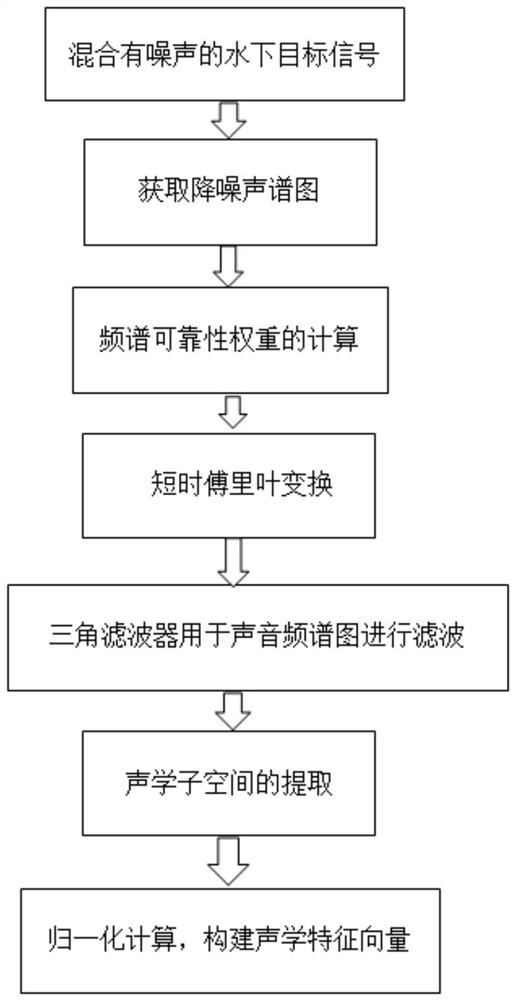Underwater target signal feature extraction method based on probabilistic latent semantic analysis
A technology for underwater target and semantic analysis, applied in signal pattern recognition, instrument, character and pattern recognition, etc., can solve the problem of low time-frequency resolution, large impact on accuracy, lack of self-adaptive ability, etc. question
- Summary
- Abstract
- Description
- Claims
- Application Information
AI Technical Summary
Problems solved by technology
Method used
Image
Examples
Embodiment Construction
[0067] The following will clearly and completely describe the technical solutions in the embodiments of the present invention with reference to the drawings in the embodiments of the present invention.
[0068] The present invention provides a method for extracting underwater target signal features based on probabilistic latent semantic analysis, such as figure 1 As shown, it specifically includes the following steps:
[0069] Step 1: Process the underwater target signal mixed with noise to obtain the noise-reduced spectrogram
[0070] The collected signal includes sound source signal and noise signal, expressed as:
[0071]
[0072] Among them, P(f,t) represents the mixed signal at time t and frequency f, S and N represent sound source and noise respectively, P(z s ) and P(z n ) respectively represent the possibility distribution of the latent variable z in the sound source signal and the noise signal, P(f|z s ) and P(t|z s ) represent the frequency possibility dist...
PUM
 Login to View More
Login to View More Abstract
Description
Claims
Application Information
 Login to View More
Login to View More - R&D
- Intellectual Property
- Life Sciences
- Materials
- Tech Scout
- Unparalleled Data Quality
- Higher Quality Content
- 60% Fewer Hallucinations
Browse by: Latest US Patents, China's latest patents, Technical Efficacy Thesaurus, Application Domain, Technology Topic, Popular Technical Reports.
© 2025 PatSnap. All rights reserved.Legal|Privacy policy|Modern Slavery Act Transparency Statement|Sitemap|About US| Contact US: help@patsnap.com



